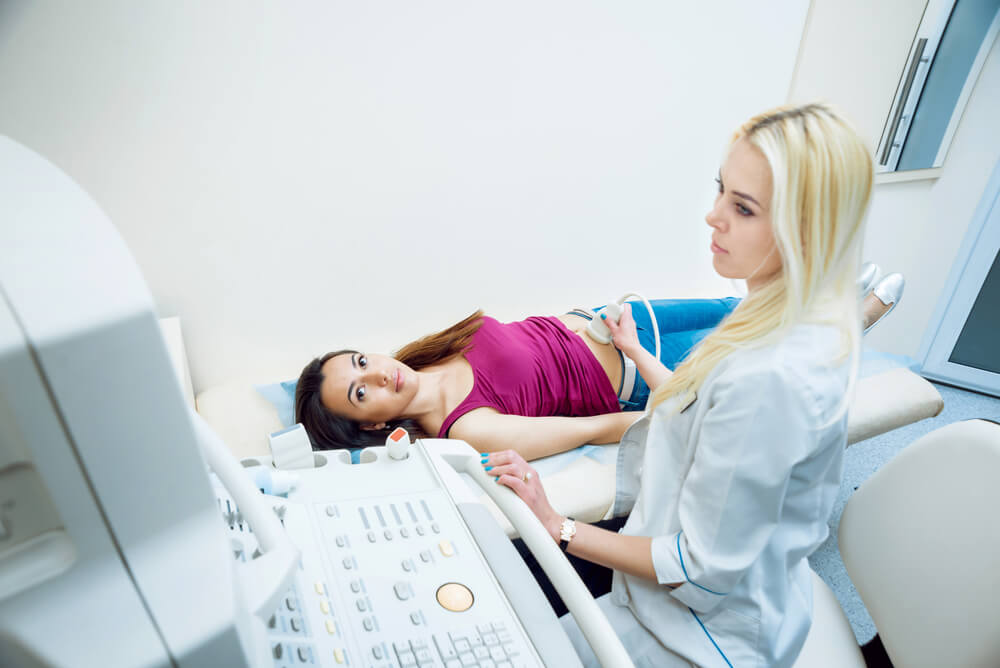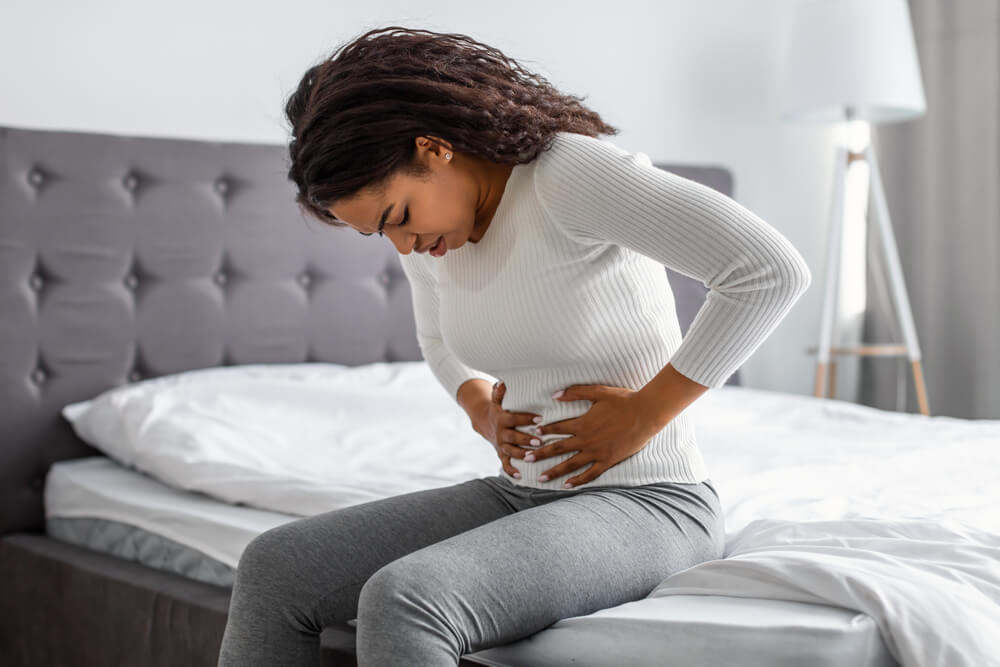Opting for an endometriosis test is an excellent way to determine if you are dealing with this medical condition. That is because painful periods are not the only symptom of endometriosis. In reality, there are nine uncommon symptoms of endometriosis that can signal this serious yet common condition in women.
If you already underwent an endometriosis test, you are on the right way to receiving a proper diagnosis. Consult with reliable endometriosis specialists for the best results and effective treatment.
That said, it is also essential to learn about the uncommon symptoms of endometriosis. Why? Simply because these rare symptoms typically go unnoticed. Thus patients fail to turn to specialists.
To stay safe, choose a relaible test and stay mindful of the following symptoms of endometriosis. Keep on reading to find out these uncommon symptoms and learn when to get expert help.
What is Endometriosis?
Endometriosis is a serious medical condition where tissue similar to the womb’s lining begins to grow in other areas, like the fallopian tubes or the ovaries. Any woman can be affected by this condition, regardless of age or life stage.
We recommend consulting an endometriosis specialist immediately, especially if you are experiencing symptoms that are affectingthe quality of your life. That said, we understand that finding the right specialist can be challenging. If you are looking for the most reliable professionals with years of expertise, we recommend Dr. Ivan Carreras, MD.
However, do not wait to reach out to an endometriosis specialist only when noticing the main symptoms of this condition (such as painful periods). Keep on reading to learn about the rare endometriosis symptoms to be mindful of.
What is the Best Endometriosis Test?

Pelvic pain and heavy periods may signal other health conditions besides endometriosis. That is why it is important to consider an endometriosis test. You want to get diagnosed early and begin with treatment immediately.
There are four different endometriosis test types you may want to consider. Talk to your doctor to determine the right type for you. Here are the most effective endometriosis test types to help diagnose your condition:
Ultrasound: The expert will use high-frequency sound waves to check the reproductive organs. A transducer or an ultrasound scanning wand may also be used, either inside the vagina or moved across the belly.
A pelvic exam: Another common endometriosis test is the pelvic exam, during which the expert will look for signs of scar tissue or cysts. However, you may require additional tests for accuracy.
Laparoscopy: Some patients may require a diagnostic laparoscopy. During this procedure, the doctor will make a tiny incision near the belly button and place a laparoscope through it to look for endometriosis signs.
Magnetic resonance imaging: An MRI is another popular endometriosis test that is used as an alternative to X-rays. With the help of a large magnet, a computer, and radio waves, the expert will check for endometriosis signs.
Top 9 Uncommon Symptoms of Endometriosis
Now that you know what the term “endometriosis” refers to and you are aware of your endometriosis test options let us look at the rare symptoms of this condition. Mind you; some patients experience one or more of these uncommon symptoms of endometriosis. For best results, talk to your healthcare specialist for further guidance.
With that in mind, here are the nine uncommon symptoms of endometriosis.
Painful Bowel Movements
If you are experiencing abnormal bowel habits, you may have endometriosis. Women experiencing painful bowel movements, diarrhea, constipation, chronic bloating, or sensitivity to certain food items may be dealing with this medical condition. Since endometriosis is inflammatory in nature, it can cause mild and serious gastrointestinal complications. Often, abnormal painful bowel movements go unnoticed or are misdiagnosed as Irritable Bowel Syndrome or IBS. However, when treated for IBS, the problem rarely resolves on its own. If you are experiencing painful bowel movements or other abnormal bowel habits, consult your healthcare professional first. Although you can get relief by making dietary adjustments, these are typically short-term. Always get proper endometriosis diagnosis and treatment first, and then make appropriate lifestyle adjustments.
Bleeding Between Periods
Bleeding during a menstrual cycle can range from moderate to heavy, and in most cases, this is normal. However, if you are experiencing bleeding between your periods or abnormal bleeding in general, you may have endometriosis. Another cause for concern is if your menstrual bleeding lasts more than seven days. We recommend paying attention to these symptoms and seeking out medical assistance right away. Bleeding between periods can signal that the reproductive hormones are not functioning properly. Additionally, women with PCOS or polycystic ovary syndrome or women approaching menopause may also experience abnormal bleeding. Overall, if you notice bleeding between your periods or abnormal bleeding to the point that the flow soaks through pads, seek out help.
Pain When Urinating
Feeling any type of pain when urinating may be another sign to talk to an endometriosis specialist. Although typically painful urination is linked with a bladder infection, it can also be a rare sign of endometriosis. Generally, your doctor will run a test to check if you have a bladder infection or whether the cause of painful urination is endometriosis.
Unknown Nerve Pain
Endometriosis can grow near or on your nerve pathways. Due to this, you may feel pain in areas such as the groin, the legs, or the lower back. This unidentifiable pain is often misdiagnosed as sciatica or another nerve-related issue.
Painful Sexual Intercourse
In many cases, endometriosis can wreck your sex life. Women with endometriosis may experience sharp pain during penetration, prolonged throbbing pain after sexual intercourse, or a general sense of aching or burning while having sex. Overall, any type of discomfort or pain during sex is abnormal and worth investigating. Unfortunately, due to sex being a taboo topic for many women, these symptoms are dismissed. If you are experiencing painful sexual intercourse, talk to your doctor. In many cases, the issue is benign, but it could signal endometriosis.
Pelvic Pain During Exercise
Women with endo may feel a sharp or stabbing pain in the abdomen and stomach when performing physical exercises. If you feel intense sensations of pulling and tearing, this could be due to disrupted adhesions. In some cases, women with endo may experience pain when doing plyometrics, abdominal exercises, or running.
Chronic Fatigue

Although feeling tired due to lack of sleep is common, chronic fatigue should not be dismissed. Traditional fatigue can be solved by getting enough sleep and allowing your body to recover. However, sleep is not the most effective solution for chronic fatigue caused by endo. Due to hormonal imbalances and recurrent inflammations in the body, endometriosis sufferers lack daily energy.
Serious Ovulation Pain
Mild discomfort during ovulation is usually normal. However, if the pain is severe and it disrupts your everydayl activities, it can be a sign of endometriosis or an endometrioma.
Acid Reflux
Gastroesophageal reflux disease and endometriosis may be mistaken for one another due to a common symptom — acid reflux. If you are experiencing severe and recurring symptoms such as heartburn, vomiting, food regurgitation, and painful indigestion, you may be dealing with endo. Often, the mentioned symptoms become more serious before your menstrual cycle starts.
If you are reading this and you are experiencing one or more of the mentioned uncommon symptoms of endo, consult a healthcare specialist today. Luckily, our team of professionals is at your service. Book your first appointment with us today.


